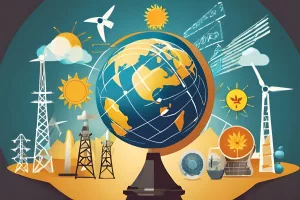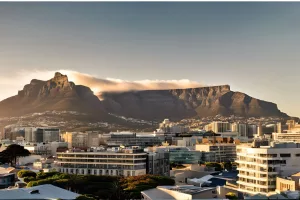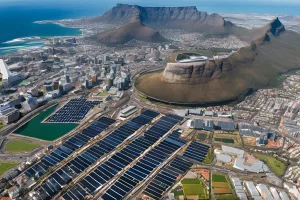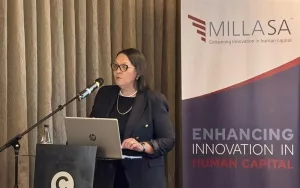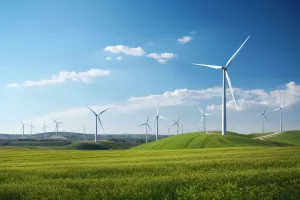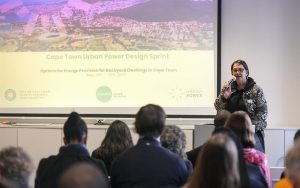Cape Town is making a big leap toward cleaner energy by getting R2.8 billion from the German Development Bank. This money will help the city build a strong energy system that can handle power outages and create around 130,000 jobs. It’s not just about electricity; this project aims to support lowerincome communities and improve lives. With this bold move, Cape Town is showing the world that cities can work together for a greener and brighter future.
The 9th BRICS Energy Ministerial Meeting brought together leaders from Brazil, Russia, India, China, and South Africa to tackle big global energy issues. They talked about using different energy sources, like hydrogen and nuclear, and the need for countries to work together to be energy independent and environmentally friendly. With a focus on sharing technology and supporting each other’s growth, this meeting aimed to create a brighter and fairer energy future for everyone. The spirit of cooperation shown here is a powerful step toward sustainable energy for all.
Cape Town’s Eco-Conscious Endeavour: A Narrative of Carbon Credits and Waste-to-Energy Practices
Cape Town is leading the way in sustainable energy and waste management with their innovative wastetoenergy projects and carbon credits. By repurposing methane gas into electricity, the city is reducing emissions and producing power, while also earning carbon credits for their ecoresponsibility. The profits from these projects are reinvested into the community and urban waste management schemes, demonstrating Cape Town’s commitment to fighting climate change and creating a more resilient city. This pioneering approach to environmental stewardship is setting a new standard for sustainable development.
Cape Town has introduced an affordable singlephase feedin meter for residents to trade excess solar power back to the city through the ‘Cash for Power’ scheme. The new meter is priced at 40% less than the previous threephase model and has already generated over R30.8m. Participants can receive credits on their electricity and rates accounts by selling power back to the city or earn cash once their total municipal bill is credited down to zero. This initiative reflects Cape Town’s commitment to promoting sustainable energy practices and reducing loadshedding.
Cape Town’s Cash for Power scheme allows households and businesses to trade their surplus solar power back to the city, providing an opportunity to tap into clean and renewable solar energy while also receiving financial rewards. The program has led to collective earnings of over R20.8 million for participants and has spurred interest in solar power utilization. Cape Town’s commitment to renewable energy and sustainable practices is setting a standard for other cities throughout the continent.
Cape Town is leading the way in sustainable energy with a commitment to reduce reliance on Eskom and eradicate load shedding by 2026 through renewable energy projects and investments in infrastructure. The city is investing heavily in the Steenbras Pumped Hydro Storage plant and aims to infuse up to one gigawatt of independent power into its grid within the next five years. With a range of programmes designed to facilitate market interventions and a commitment to energy resilience, Cape Town is setting an example for others to follow.
Revolutionizing South Africa’s Energy Crisis: Premier Mxolisi Dukwana Leads Landmark Free State Summit for a Sustainable Tomorrow
The South African province of Free State, led by Premier Mxolisi Dukwana, is preparing for a groundbreaking Energy Security Summit taking place in Bloemfontein on November 2, 2023. With its theme “Energizing the Future,” the summit strives to discover lasting energy answers and stimulate economic growth by encouraging cooperation between the government, higher education institutions, and private businesses. Over 500 delegates are anticipated to attend, providing an exceptional chance for specialists, academics, policymakers, and potential financiers to participate in productive discussions and establish partnerships for a cleaner, more thriving tomorrow.
Cape Town’s Innovative Energy Strategy: Striving Towards a Sustainable, Loadshedding-Free Future
The City of Cape Town has called on its residents and other stakeholders to review its ambitious draft Energy Strategy before the deadline for public comments on 31 July 2023. The strategy outlines the City’s commitment to ending loadshedding, reducing energy poverty, and optimizing energy use.
Cape Town, known for its beautiful landscapes and vibrant culture, is taking a bold step towards addressing the country’s energy crisis. In an innovative move, the city’s Mayor, Geordin HillLewis, has announced an electricity wheeling pilot project in collaboration with 15 commercial electricity suppliers.
The Kusile Power Station is an ambitious project that has been in construction for over a decade. With an estimated cost of R160 billion, it is one of the largest coalfired power stations in the world, with a capacity to generate 4,800 megawatts of electricity upon completion.
Energy poverty is a significant challenge facing many communities in Cape Town, particularly those living in backyard dwellings. Backyarders, who often live in informal settlements, face significant energy challenges due to a lack of access to essential energy subsidies, such as the Free Basic Electricity (FBE) offered by the city.


